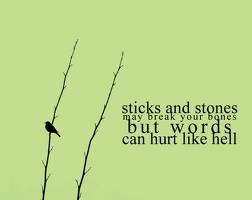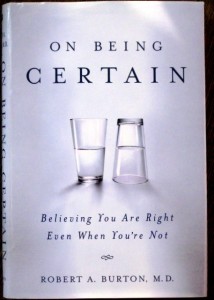When I was growing up we had games like ‘tag’, ‘hopscotch’, ‘kick the can’, and ‘jump rope.’ Most were a variation on a form of chase. Some required some hand-eye skill. Throwing a top. Spinning a yo-yo. Picking up jacks.
Those days seem to be on the way out.
Last month I spent a week with the youth from my church at work camp. They introduced me to a whole new world of kids’ games, none of which involve a whole lot of skill, speed, or coordination. They do, however, require a bit of daring, a quirky sense of humor, and a Facebook page.
Let me tell you about two.
 The first game I was introduced to was ‘coning.’ I don’t know what you immediately think of when you read or hear the word ‘coning’. I can tell you that when I first heard the term, I said to myself:
The first game I was introduced to was ‘coning.’ I don’t know what you immediately think of when you read or hear the word ‘coning’. I can tell you that when I first heard the term, I said to myself:
“This can’t be good.”
But it turned out to be neither risque nor illegal. Just a bit odd.
Going ‘coning’ involves three things – a drive up window, an ice cream cone, and (optional) a phone that takes pictures or movies. The game is quite simple. You go to the drive up window. Order an ice cream cone. And when the attendant hands you the ice cream cone, instead of grabbing it by the cone you grab it by the top … by the ice cream.
That’s it.
Fun, huh?
If you missed it (the fun, that is) that’s ok. So did I. But that’s because you didn’t know where to look. The fun lies not in wasting a good ice cream cone that you only recently paid for. The fun lies in the experience.
The first experience is deciding to do it. And believe it or not, acting out on something as disturbingly silly as grabbing an ice cream cone by the ice cream requires some gumption. If you don’t believe me, try it. Go ahead. I dare you! (which is how I think this game began, by the way!)
The second experience is recording and sharing it. In the van full of teenagers that I was driving there was story after story of “oh, I remember doing it back at the McDonald’s in so and so …”. But beyond just telling stories there’s the video phone recording and posting on Facebook. That is the real badge of honor. And it is really the only way anyone can convey any meaning behind an act that on its surface seems so silly.
Don’t believe me. Check this out. (Or search on ‘coning’ on YouTube.)
Which leads me to game number two – planking.
 Again, I don’t know what ran through your mind when you read about the act of ‘planking’ but when I heard it I didn’t think this was something that teenagers should be doing. At least not in public or without protection.
Again, I don’t know what ran through your mind when you read about the act of ‘planking’ but when I heard it I didn’t think this was something that teenagers should be doing. At least not in public or without protection.
But planking is an international phenomenon. I understand it has been banned in Australia.
Planking goes something like this. Identify a spot where you think it would be odd to find a person lying face down – preferably some location where it would be physically difficult to do so (think narrow, sharp, and high). Then figure out a way for you to lay on that space in a yoga ‘plank’ position. Have someone take a picture.
That’s it.
Fun, huh?
Apparently so. Planking does require some physical skill. And like coning, there’s quite bit of chutzpah associated with it (more points the stranger and odd the location). It isn’t about who is faster, quicker, stronger. It is who is sillier, goofier, and more imaginative.
What both have in common is that their fun derives from SHARING the experience (either video or photo). It isn’t about being the fastest or most coordinated. It is about being able to make another person laugh, smile, or say “wow”!
And I think that is pretty cool.
What is your favorite kids game these days?








